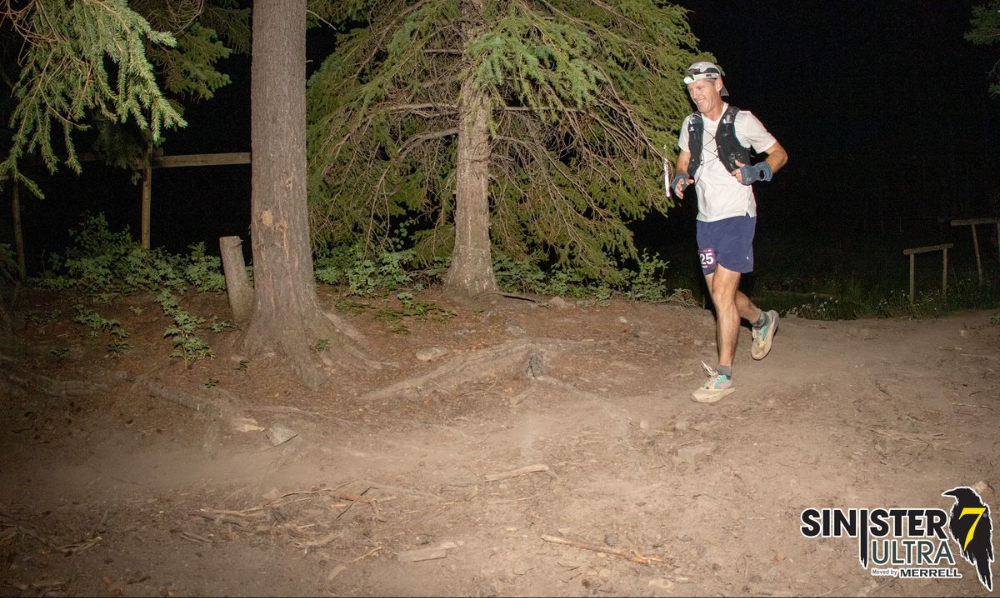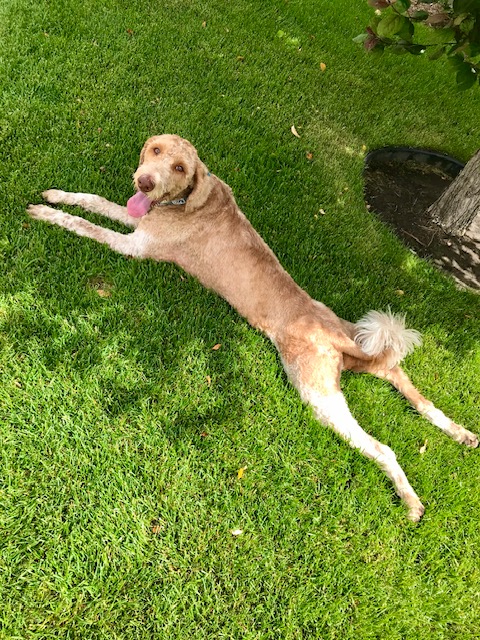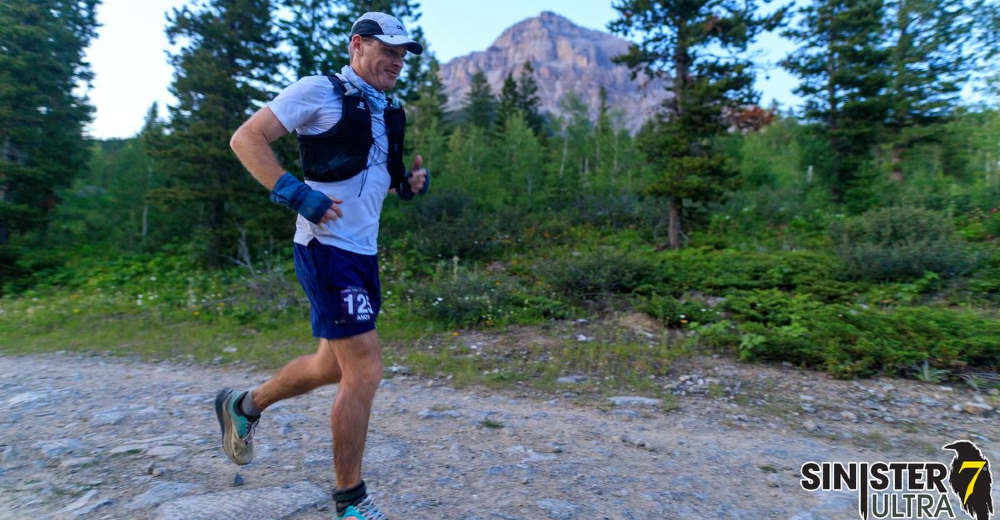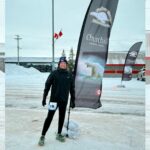Andy Collin loves a challenge.
The 46-year old father and City of Saskatoon manager has been hooked on running ever since he signed up for a half marathon on a whim in his mid 20s. Over the past decade, he’s become a dedicated ultrarunner, constantly pushing his limits on the trails.
Since running his first ultramarathon in 2010, he has raced upwards of 15 100-mile (161km) events and has lost count of how many 50-mile (80km), 100-kilometre and 50-kilometre races he’s lined up at. His proudest racing accomplishment to date is a ninth-place finish at the grueling Bigfoot 200-mile Endurance Run in Washington’s Cascade Mountains in 2023 where he crossed the finish line in 68 hours and two minutes.
But this summer might be Collin’s toughest test yet. He is gearing up for the Sinister Triple, which will see him tackle three of Canada’s toughest ultramarathons in the span of six weeks: The Sinister 7 Ultra (100 miles; July 12), Canadian Death Race (118km; Aug. 2) and Black Spur Ultra (108km; Aug. 23). To top it off, he’ll be returning to defend his title at the Beaver Flat 50 just three weeks after Black Spur.
“This will provide a new challenge in terms of: How am I going to recover, rest and recuperate in that short period of time between races?” Collin says.
“As what I consider a slightly older runner, I’m not sure how my body’s going to react to doing such high miles in races back-to-back. My parents continue to think I’m a bit stupid for doing all this, but I’m still proving them wrong. It’s going to be a very busy, sore summer — lots of time on the foam roller and stretching and things like that — and I’m just looking forward to the challenge.”

Collin grew up in England as part of a “very sporty” family and played a lot of team sports including rugby and field hockey. But as Collin got older, his rugby mates and opponents kept growing while his growth plateaued so he decided to give running a shot when he was a university student in the early aughts.
“I just thought: I’ll put on my old cotton T-shirt and a pair of board shorts and run a half marathon,” Collin recalls. “In the end, my nipples were chafed and my inner thighs were rubbing on the board shorts. I had no idea what I was doing; I felt sick.”
Still, Collin finished the race and was hooked.
“I crossed the finishing line and had a bit of a euphoric feeling,” he says. “The feeling that most people get when they cross the finishing line — that sense of accomplishment — that was quite addictive, actually. Throughout my entire running career for the last 25-odd years, crossing the finishing line is just the most wonderful feeling.”
Collin went on to run several road marathons, but found road running tough on his joints and shifted his focus to the trails in 2010. As with his first half marathon, Collin felt like he had no idea what he was doing in his first ultra trail race at the Leadville Trail Marathon in Colorado. “It was straight up and down a mountain and that hit me quite hard,” he says. “I was throwing up from altitude sickness, I was just really, really unprepared for the terrain.” (He ultimately finished the 42-km race in a time of five hours, 50 minutes).
The finish line euphoria that made Collin fall in love with running a decade earlier was part of the reason he sought out more trail races. But he was also captivated by the mountain scenery, enchanted by the camaraderie among other runners and blown away by how great the aid station volunteers were. “They actually make it kind of difficult to leave the aid station which — in a race — is kind of not what you want,” he says.

In the years since, Collin has logged hundreds of kilometres on the technical trails along the South Saskatchewan River year round, running in the mornings while his son and daughter sleep and during his lunch breaks. He runs 100 to 130 kilometres a week when training for a race in addition to foam rolling and stretching. He doesn’t do much formal cross training, but is active with his kids, including biking and playing soccer with them.
While Collin’s two kids haven’t taken to running (his son prefers soccer and his daughter is into dance) both are proud of what their dad accomplishes on the trails and have supported him in various races. Two of Collin’s favourite race experiences — the 2023 Crazy Mountain 100 and last year’s Beaver Flat 50 — are so memorable because he had a kid at aid stations in each (his dad also provided support at the Crazy Mountain 100).
“I feel like I’m setting a good example for my kids,” Collin says. “I’ve heard them showing off to their friends about me. That’s pretty damn special.”
With so much racing on tap this summer, Collin’s training load will be unusually light — and he can’t wait.
“One of my favourite things about ultra running is actually tapering before a race and recovering after a race because I get to eat as much as I can after a race, and I just put my feet up and relax before a race,” he says. “I guess my summer is going to be spent tapering and recovering between races. And I am really excited for that.”
The only one not thrilled? His five-year-old labradoodle, Lhotse, who joins Collin on most of his training runs.
“He usually even brings me my running gear in the house because he wants to go out. It’s quite cute,” Collin says. “He’s coming to Sinister 7 with me and it will be a nightmare for him when I’m getting all my running gear on and he realizes he’s not coming with me. It’s going to be heartbreaking for him.”
Beyond this summer, Collin hopes to one day race in Europe and run through the Alps. He hasn’t set a timeline yet for those dreams — he’s hoping to keep chasing finish lines for many years to come.
“I want to be doing what I’m doing — maybe not to such an extent — but to continue the ultras for the next 10, 20 years,” he says. “I see people at races who are in their 60s and sometimes even in their 70s.
“I want to be one of those people.”









